Although it may seem like the distant past, it was just a little over a year ago when Canadians voted for the leader of our nation. Canada endured one of the longest campaigns in its history, with hours of airtime devoted to the candidates.
From Nova Scotia to British Columbia, the Canadian people voted decisively for change. A sea of red swept over the electoral map as Justin Trudeau’s Liberal government won a majority.
Welcome back to 2016. America’s gruelling presidential campaign dwarfed Canada’s leadership race from the year before, and a sea of red of a different variety swept over America.
The Republican party took the senate and the house, while Donald Trump became the 45th president of the United States. This is the same Donald Trump who hosted The Apprentice, wrestled with Stone Cold Steve Austinand bragged about “grabbing women by the pussy.” It’s that Donald Trump who will be the leader of the most powerful country in the world.
It’s a statement that still sounds surreal even after a week to let it digest. The polls, the experts and basic human decency all pointed towards Trump losing. But at every stage of Trump’s campaign, he was not regarded as a serious threat to win. Whether it was the media, Republicans, or Democrats, Trump was not taken seriously until it was too late.
It’s an election that leaves the world collectively wondering how this could have happened and leaves a large segment of Americans to question their place in their own country.
For Canada, there is a sense of nervousness. President-elect Trump and Prime Minister Trudeau could not be more different. While Trump wants to build walls, deport immigrants and appoint white nationalists to his cabinet, Trudeau is trying to open Canada up to the world , bring in more refugees and promote equality in government.
After the election, the United States is essentially Canada’s really drunk best friend. They might say some stupid shit they’ll regret later and get into a fight with strangers, but you have to back them up because that’s your best friend.
The relationship between the United States and Canada is incredibly important to both countries, but President Trump may threaten that relationship. Trump has vowed to either bow out or renegotiate NAFTA, and has not shared Obama and Trudeau’s enthusiasm for climate change reform. If there’s any silver lining, it’s that Justin Trudeau has extensive experience dealing with children.

While Canada questions its place in a world with Donald Trump as the United States president, there’s a cluster of people looking to escape Trump. Whether it’s liberal whites or minorities Trump insulted throughout his campaign, Canada seems like a utopia.
A vast country with beautiful landscapes, free healthcare, and a handsome left-wing prime minister makes Canada seem like a flawless destination for Americans looking to escape Trump. Canada’s immigration website crashed on US election night and one Cape Breton website went viral due to fear of Trump.
But as AMC’s The Walking Dead is keen on reminding us time and again, most sanctuaries end up being a horrible disappointment. While Canada may seem like utopia, the deep racism and longing for white dominance that has divided the United States is still prominent in our home and native land.
Trump’s win and the United Kingdom’s decision to leave the European Union are evidence of a contagious thirst for self-importance and eagerness to shut out the rest of the world. Many Americans and Brits who do not side with this sentiment did not realize the enormity of their country’s divide until it was too late.
And while Canada’s decision to elect Justin Trudeau last year breaks away from the trend set by Brexit and Trump, it’s important to note that there’s a strong segment of Canadians who don’t think Trudeau is good for this country.
Let’s not forget, Canada is coming off of 10 years with Stephen Harper as prime minister. Harper was a strong advocate for Americanizing Canadian politics. From his right-wing views and “tough on crime” rhetoric, Harper channelled US presidents like Ronald Reagan and George H.W. Bush (minus any charisma).
In last year’s election, the debate around the niqab divided the country. Harper’s racially charged statements struck a chord with a significant collection of voters, but a united animosity towards the incumbent prime minister prevailed.
Now, in a Trudeau-led Canada, there are politicians rising up and harnessing anti-liberal anger in a similar fashion to Trump in an Obama-led America. Kevin O’Leary and Kellie Leitch have become leading voices for the Progressive Conservative party by tapping into the same base that propelled Donald Trump to the presidency.
Leitch has aligned herself with Donald Trump and promised to screen immigrants and refugees for “Canadian values” such as equal opportunity, freedom, and hard work. Meanwhile, O’Leary has risen to political prominence by waging war against political correctness and making use of his celebrity much like Donald Trump.
In addition to the political landscape, racial tension in Canada is quietly an issue. Canada likes to pride itself on equality and acceptance while cities in America riot, but it doesn’t take long to realize Canada’s racial history is nothing to be proud of. All it takes is a look at residential schools, the story of Viola Desmond or the story of black Canadians being shunned from the military before World War 1 to realize Canada is not immune from racism.
While Canada’s racial history hurts, it’s the current outlook that is most problematic. The systemic racism that sparked social movements like “Black Lives Matter” and anthem kneeling in the United States is just as prominent in Canada. The hardship that African-Americans have endured is incredibly similar to the treatment of Aboriginal Canadians throughout Canada. The chart below from a Macleans article last year highlights the extent of Canada’s systemic racism:
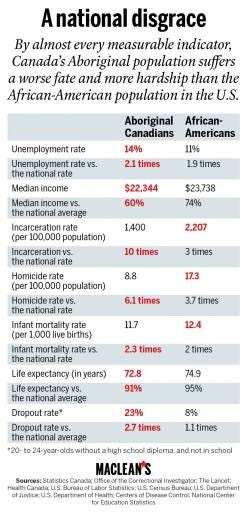
While Justin Trudeau has promised to change many of the issues that face minorities in Canada, we cannot forget that we are one election away from going back to square one.
While the Trump phenomenon swallows up the media cycle, it is important to keep focus on domestic issues in Canada to forgo facing the same fate as our American and British friends. Right now, Canada is the designated driver on a night out with its crew, but it cannot give into the urge to start drinking the sauce.
If Canada is advertising a better alternative to living in Trump’s America, it can’t succumb to the attitudes that are on the rise in the country. As America and Britain have found out the hard way, these threats to the country’s well-being have to be taken seriously before it’s too late.

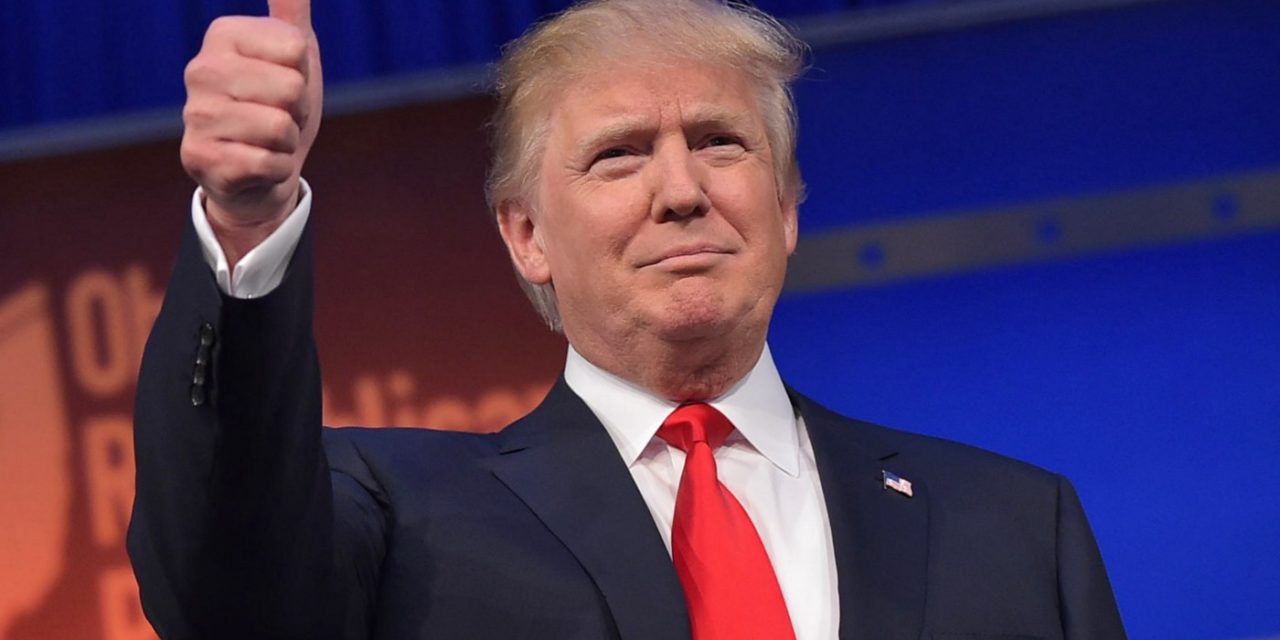
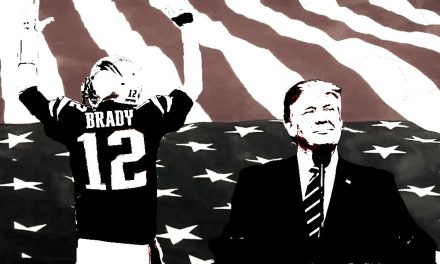
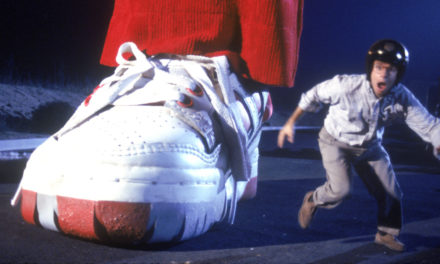
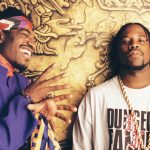




Recent Comments